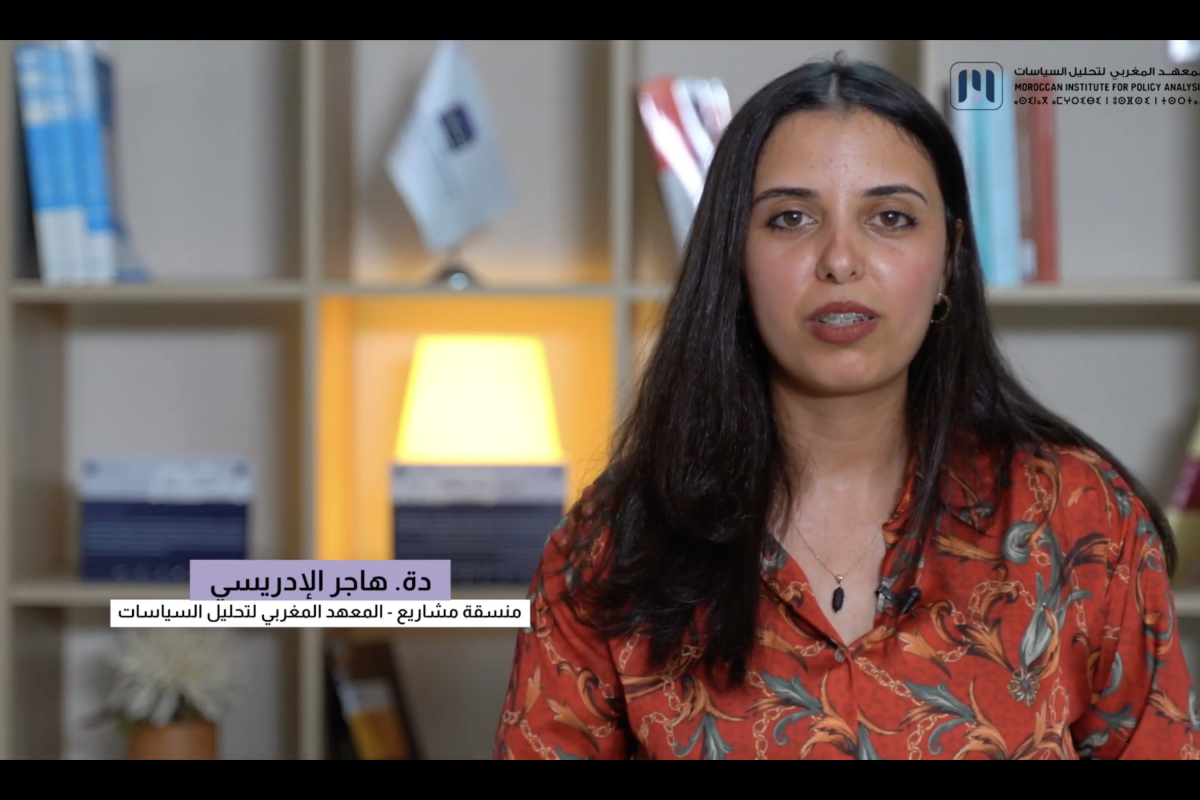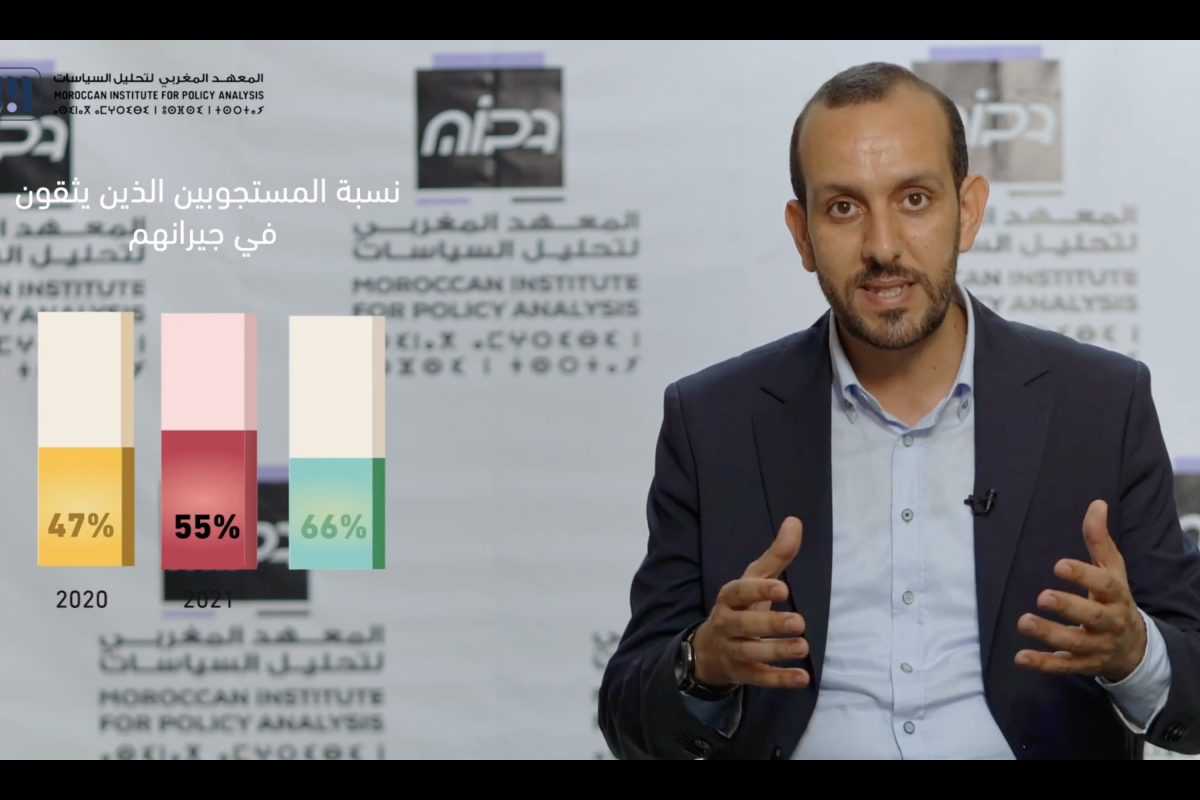” The health crisis that swept the world in 2020 affected people’s lives in all aspects, including the relationship of citizens to their social and political institutions. While most studies have focused on the economic and health effects of the Covid-19 crisis, little attention has been granted to its social and political effects and its impact on the citizen’s relationship with other citizens and with the state. “
Within this context, the Moroccan Institute for Policy Analysis believes in the importance of studying and understanding citizens’ attitudes and perceptions concerning trust in various institutions. Understanding the relationship between citizens and their political institutions helps to produce policies that enhance the level of citizens’ trust towards their institutions and, as a result, contribute to strengthening institutions.
This brief report attempts to shed light on the various aspects of political trust in Morocco in the years 2020-2021. It represents the results of a research effort that took nearly two years in a row, where the research team worked to provide a systematic analysis of social and political trust as well as trust in the education and health sectors during the Covid-19 period, through a mixture of quantitative and qualitative research methods.
Political trust is related to citizens’ perceptions of their political institutions and political actors, and whether they are seen as trustworthy, competent and impartial. In particular, political trust helps mobilize the support institutions need for stability and an element of political legitimacy. Political institutions with high levels of trust are more robust and are able to enforce institutional rules, while a low level of trust reflects the fragility of institutions.
The conclusion drawn from the research is that the unelected state institutions enjoy significantly higher levels of trust compared to the elected institutions. In fact, the police and the army enjoy the highest levels of political trust among Moroccans. It also confirms the weakness at the level of citizens’ participation in the political sphere and involvement in the public sphere (weak levels of citizens’ follow-up on issues of political affairs, party affiliation, participation in elections). There is a negative representation of the political practice and the work of elected institutions, as the political sphere is linked with phenomena such as fraud, chaos and failure of an effective management.
You will find more in the report prepared by the Institute’s team.
MIPA Institute
MIPA is a non-profit independent research institution based in Rabat, Morocco. Founded by a group of transdisciplinary researchers, MIPA’s mission is to produce systematic and in-depth analysis of relevant policy issues that lead to new and innovative ideas for solving some of the most pressing issues relating to democracy.

